Broadway World (James Kaufman mentioned as upcoming podcast guest)
Cameron Mackintosh Among Guests of New Podcast Providing Advice for Aspiring Artists
Playbill (James Kaufman mentioned as upcoming podcast guest)
Robert H. Hart Fellowship: Notable Educator’s Legacy to Impact Aspiring Teachers
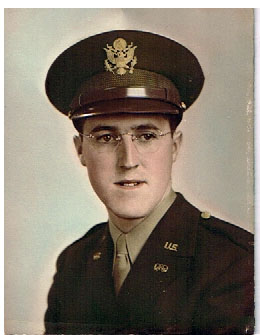
UConn alum Robert H. Hart ’40 (CLAS) lived a life dedicated to his hometown of Meriden, Conn., including a 30-year career spent there as an educator. Hart, who passed away in April 2015 at the age of 96, will now be remembered at the Neag School through a student scholarship newly established in his name.
From Math Teacher to Principal
Born in Meriden, Hart lived in a small house on Webster Street with his family; his father worked as a butcher. Given his family’s limited resources, Hart, the youngest son, ended up being the only member of his family to go to college.
He majored in chemistry at UConn and minored in math. A drum major for his high school band, Hart continued his love for music at UConn, where he also served as the drum major — one of the “highlights of his career,” according to one of his four children, Ronald P. Hart ’77 (CLAS).
Graduating in 1940, Hart was facing what was the end of the Great Depression and the beginning of World War II. Unable to find a position as a chemist at the time, he worked for a time as a math teacher in Willimantic, Conn., before joining the Army to serve in the chemical corps. He spent four year on active duty in India, working as a supplies officer. Luckily, his only responsibility as a chemical officer was defusing bombs at the war’s end.
After being discharged from the Army as a first lieutenant in 1946, Hart returned to Meriden to continue his career in education — spending the next 11 years as a math teacher at Meriden High School. A popular teacher and a favorite among his students, he was well known for the organization and clarity of his math lessons, and the very high standards to which he held himself and his students. Administrators at Meriden Public Schools saw this talent and next tapped Hart to serve as an assistant principal at the newly built Maloney High School.
“He worked very hard to be disciplined and fair,” says one of his sons, Ronald “Ron” Hart, of his father’s transition from math teacher to administrator at Maloney High School. “He expanded the scope of classes offered at Maloney, worked hard to enhance standards, and he oversaw a major addition to the building.”
“My wife Mary Ann and I thought it would be an ideal tribute to my father, his career, and his values to establish a fellowship in his name. Luckily, the Neag School offered an ideal program to benefit from this fellowship.” — Ronald P. Hart ’77 (CLAS)
Four years later, when the then-principal retired, the senior Hart was appointed to the post, one he would hold for the next 15 years. “Many of the more difficult students told me that they liked my father as principal because he was fair and listened to their side of a situation before judging them,” says Ronald.
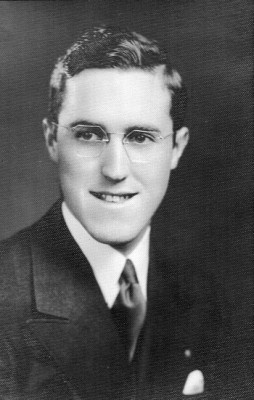
A Commitment to Education
As he pursued his career, Robert Hart was simultaneously focused on educating his family, putting four children through college. Robert had married the love of his life, Viola Gardinier Hart, in 1942. Together they had four children: Nancy Hart Tillberg ’68 (CLAS), Linda Hart Ruggeri, Robert Hart, and Ronald Hart. All four siblings had the same “deal” with their father, Ron recalls: Their tuition, room, and board were covered; they had to pay for their books and spending money by saving money from summer jobs.
The younger Hart was impressed with his father’s dedication to making this happen. “It’s amazing to me now that I understand how hard this was to do,” he says. “I chose UConn partly because I knew it was a good college for me, but also because I respected the fact that my father was committed to paying for my education.”
The elder Hart put in for his retirement from the Meriden Schools on the same day he paid for his son’s last UConn tuition bill. The younger Hart followed his own path in the field of education, going on to earn a doctoral fellowship at the University of Michigan, take on a postdoc position at Rockefeller University in New York City, and eventually start at Rutgers University’s Newark campus as an assistant professor. Today, Ronald is at the Rutgers campus in Piscataway, N.J., where he is a professor in the Department of Cell Biology and Neuroscience, and director of the Human Genetics Institute of New Jersey Stem Cell Program. He also serves as a governor-appointed member of the Connecticut Regenerative Medicine Advisory Committee, overseeing $10 million in funding for stem cell and regenerative medicine research in Connecticut.
Meanwhile, the elder Hart had moved on to the next chapter in his life, becoming a successful real estate agent and active civic volunteer, serving as a leader for several community organizations while maintaining his Meriden roots.
A Special Tribute
When his father passed away last year, the younger Hart came to appreciate his father’s lifelong ability to save money while staying productive in retirement. Since the younger Hart strongly believed in his original “deal” — that his inheritance was his college education — he wanted to do something more appropriate with his share of his father’s last savings.
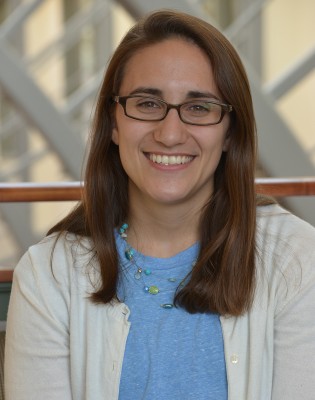
“My wife Mary Ann and I thought it would be an ideal tribute to my father, his career, and his values to establish a fellowship in his name,” says Ron. “Luckily, the Neag School offered an ideal program to benefit from this fellowship.”
The late Robert Hart’s legacy is coming full circle. Now officially established, the Robert H. Hart Fellowship will be awarded to its first recipient during the Neag School of Education’s annual Honors Celebration this month. The scholarship is intended for current students enrolled in the Neag School’s Integrated Bachelor’s/Master’s Program and who demonstrate financial need, with priority consideration given to those who are from Meriden, are student teaching there, or have plans on working there after graduation.
The first recipient of the scholarship, Gabriella Benitez, admires the late Mr. Hart’s dedication to the Meriden school system and his interest in mathematics. “I also plan to teach mathematics at the secondary level for many years to come,” she says.
Benitez plans on teaching in a Connecticut urban school district and aspires to become a teacher in order to impact students’ lives and build confidence in their academic abilities.
“I want students to find value in their education and thrive in a collaborative environment. In the secondary classroom, I want to help students develop their strengths, discover their passions, and pursue higher education,” she says. “I look forward to serving my future school community and following the path of an admired Connecticut educator and University of Connecticut graduate.”
To learn more about how you can help in supporting scholarships and giving opportunities related to the Neag School, visit here, or contact Heather McDonald at hmcdonald@foundation.uconn.edu or 860.486.4530.
How Career and Technical Education in High School Improves Student Outcomes
EducationNext (Shaun Dougherty’s recent Fordham Institute report on CTE cited)
Recently Established Pichette Scholarship Names First Neag School Student Recipient
From the moment the Neag School of Education announced its intention this past fall to launch a new scholarship fund in honor of longtime colleague Valerie Pichette, intense support from within and beyond the University quickly became clear.
Faculty, staff, administrators, alumni, students, and friends of UConn immediately offered an outpouring of contributions — contributions that accumulated so quickly, in fact, as to reach the UConn Foundation’s endowment requirement within a mere six weeks, ensuring that the Valerie J. Pichette Scholarship Fund will now honor Pichette every year in perpetuity.
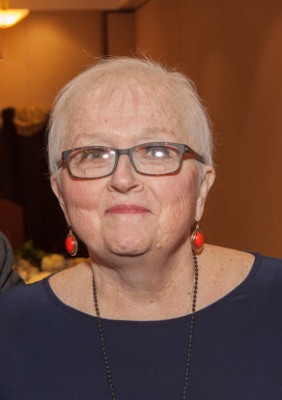
To date, a total of more than $56,000 has been raised for the scholarship through cash and pledges from 117 donors, according to the UConn Foundation. Not only has it turned out to be the top employee-supported fund at the University for fiscal year 2016, but the total amount raised in Pichette’s honor also is more than double the minimum needed to establish a new fund named in honor of a University staff member.
The scholarship was created to honor Pichette’s 30 years of service to the state of Connecticut, including her 18 years at the Neag School, where she served as an executive assistant – first with Dean Richard Schwab and later with former Dean Thomas DeFranco. However, Pichette, who was privately battling cancer when the scholarship was first initiated, passed away in November before news of its status as an endowed fund had become official.
Paying It Forward
Later this month, the Valerie J. Pichette Scholarship Fund will honor its first student recipient, Luis Organista ’14 (CAHNR). Organista, a UConn alum with a bachelor’s degree in natural resources and the environment, will be joining the Neag School’s Avery Point campus this May as a student in the Teacher Certification Program for College Graduates (TCPCG) — an 11-month, post-baccalaureate teacher education program through which aspiring schoolteachers earn a master’s degree in curriculum and instruction, as well as recommendation for teacher certification by the state of Connecticut.
Organista, who will receive $1,000 in financial support for the coming academic year through the new fund, has his sights set on teaching science, specifically biology and environmental science. Since graduating with his undergraduate degree, Organista has worked in a number of roles for the state of Connecticut’s Department of Environmental Protection. This past summer, part of his job involved educating 20 inner-city children about environmental conservation and fisheries — which included taking children for fishing trips on local lakes. It was in this setting, interacting with school-aged youth on a daily basis and getting them excited about the natural world, that Organista found himself inspired to explore a career path focused on teaching.
“I decided teaching would be great because I enjoyed being with the kids,” says Organista, now 24. As he started researching teacher certification programs, he soon became aware of TCPCG. Knowing, as he says, that “it would work out perfectly,” he headed to an upcoming information session and was ultimately accepted into the program. In preparation for his time in the TCPCG program, Organista is currently working as a science and math tutor at Windham Middle School.
“We’re overwhelmed and speechless by the amount of support everyone has given. It’s a testament to my mom and to how she impacted so many people.” — Dan Pichette ’04, ’11
Upon learning that he had been selected as the recipient of the Pichette scholarship, Organista began reading about Pichette and her legacy. What he found, he says, “really showed how much she cared for the students and how much work she put into ensuring that they enjoyed what they did.”
“Receiving this award helps me to think about doing the same thing,” he adds. “I want to be a teacher that helps students out and is always there to help with any problems or in improving themselves. I want to be a role model for the students in school and in the community.”
He says he also felt a special connection with Pichette after realizing that she had worked at Quinebaug Valley Community College in Willimantic prior to her time at UConn; Organista is a lifelong resident of Willimantic.
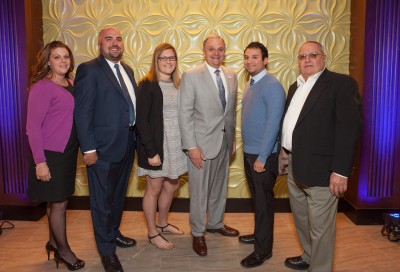
‘All Thanks to Her’
The scholarship will be formally presented to Organista at the Neag School’s annual Honors Celebration on April 20, where he will have the opportunity to meet members of Pichette’s family. Organista says he is eager to learn more about Pichette and to express his gratitude to her family members: “I hope that they maybe will follow me in my career and see where I head so that they can see the potential that I’ve reached – and that’s all thanks to her.”
Organista also has been named the recipient of two other scholarship awards — the Husky Teach Noyce Scholarship, which is funded by the National Science Foundation to help support science, technology, engineering, and math education in the U.S., and the Neag School of Education Graduate Fellowship, awarded to graduate students with strong academic performance.
“It sounds like [Luis] is the perfect candidate and what my mom would have wanted — especially with him going through TCPCG, a program that was close to my mom’s heart. It’s the cherry on top that he’s from Willimantic, with our family having roots there,” says Pichette’s son Dan Pichette ’04, ’11, dean of students at the Journalism and Media Academy Magnet School in Hartford, Conn. “The idea that this scholarship will go on in perpetuity — we’re overwhelmed and speechless by the amount of support everyone has given. It’s a testament to my mom and to how she impacted so many people.”
“This is a wonderful example of how faculty and staff give ‘Close to Home’ in support and honor of our colleagues,” says Heather McDonald, senior director of development at the UConn Foundation. “It’s a powerful statement to have more than 100 donations within six weeks.”
The Foundation’s staff played a major role in the swift and successful establishment of the Valerie J. Pichette Scholarship Fund, adds Dean Schwab, who worked closely with Pichette for many years at the Neag School. “We are very thankful to the Foundation team for their partnership in pulling all of the moving pieces together,” he says. “The fact that this scholarship came together so quickly is a testament to all of those who knew and loved Val.”
To contribute to the Valerie J. Pichette Scholarship Fund, please visit s.uconn.edu/pichette. Learn more about additional scholarships and giving opportunities related to the Neag School here; or, contact Heather McDonald at hmcdonald@foundation.uconn.edu for more information.
World-changing Inventions Part of the Curriculum at Connecticut Middle Schools
Fox 61 (Renzulli Academy, founded by Joseph Renzulli, is featured in this segment)
Career-Tech Linked to Graduation Boost — But Not Tracking
Education Week (Shaun Dougherty CTE research cited)
Study: Career and Technical Education Boosts Students
Education Watchdog (Shaun Dougherty research on CTE cited)
Fordham Institute Report Highlights Value of CTE
CTE Policy Watch Blog (Shaun Dougherty’s report is covered)
Access For All
Diverse Issues in Higher Education (Allison Lombardi quoted)
